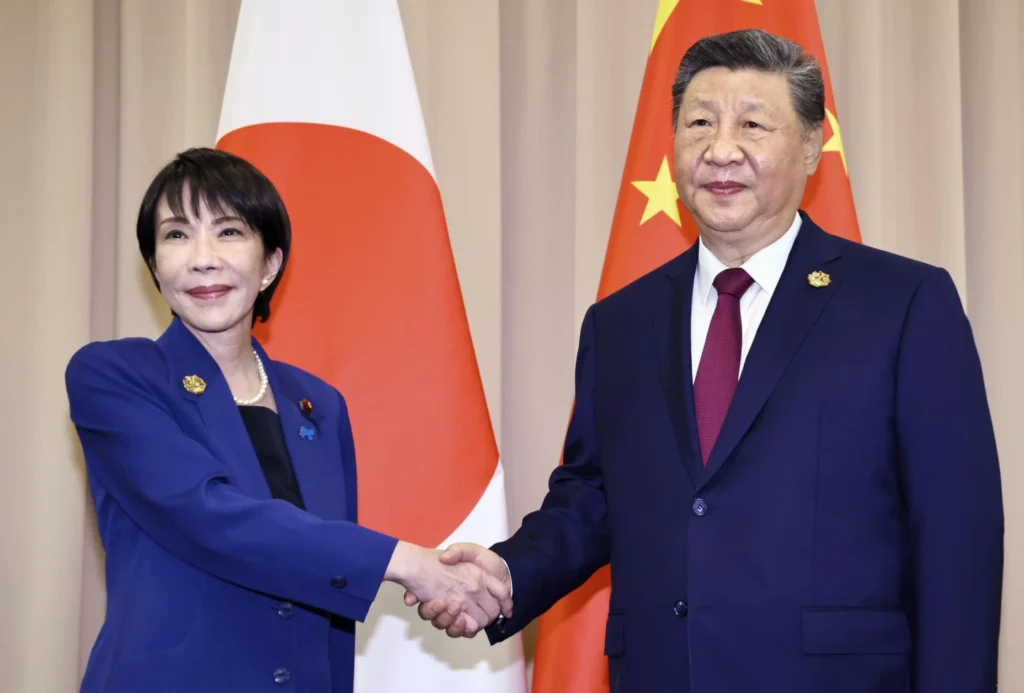Japan’s month-old administration is facing a fast-escalating diplomatic row after Prime Minister Sanae Takaichi suggested that a Chinese move against Taiwan could trigger a Japanese military response a stance significantly firmer than any taken by her predecessors.
Her remarks, delivered to a parliamentary committee on November 7, indicated that a Chinese naval blockade or similar action targeting Taiwan could meet the threshold for Japan to invoke its right to collective self-defense. Such a position signals a new level of clarity from Tokyo, which has historically expressed concern for Taiwan’s security but avoided openly stating what actions might prompt military involvement.
Takaichi later declined to retract the comments, though she told lawmakers days afterward that she would refrain from addressing hypothetical conflict scenarios going forward. The new prime minister has long been a vocal supporter of Taiwan and ordered an acceleration of Japan’s military build-up shortly after assuming office.
Foreign Minister Toshimitsu Motegi moved quickly to reaffirm that Japan’s overall position on Taiwan remained unchanged, though the diplomatic damage was already spreading.
China responded with strong warnings, summoning Japan’s ambassador in Beijing and accusing Tokyo of crossing a “red line.” State media, China’s ministries, and the Taiwan Affairs Office all condemned Takaichi’s remarks. Beijing also rebuked a now-deleted social media post from its own consul general in Osaka, who used inflammatory language that prompted Japan’s Foreign Ministry to issue a formal protest.
By Friday evening, China widened its response by advising its citizens against travel to Japan, a move that threatens Tokyo’s tourism sector at a time when Chinese visitors account for nearly a quarter of arrivals. The Education Ministry followed with a caution to students, while China’s coast guard announced fresh patrols around disputed islands claimed by both nations.
Despite the rising tensions, analysts in Beijing described Takaichi’s remarks as unexpected, noting that the regional climate around Taiwan had been relatively stable at the time. Japanese officials have since attempted to de-escalate, with Motegi urging China to ensure the situation does not inflict serious harm on bilateral relations.
Behind the unfolding diplomatic clash lies Japan’s complex security framework. The post-war constitution limits the use of force to self-defense, but a 2015 reform championed by former Prime Minister Shinzo Abe expanded the mandate to allow military action to assist an ally typically the United States if Japan faces an “existential threat.”
Takaichi, a protégé of Abe, appears to have interpreted a potential Chinese attack or blockade of Taiwan as such a threat, triggering a wave of domestic and international scrutiny. Analysts note that walking back the statement now could constrain Tokyo’s flexibility in a crisis or weaken the new leader’s image as a firm defender of Japanese security interests.
As both capitals trade diplomatic protests and warnings, the broader U.S.–Japan alliance remains a critical factor. Any flare-up involving Taiwan would likely draw Washington into the equation, potentially placing Tokyo in the middle of the region’s most dangerous fault line.


